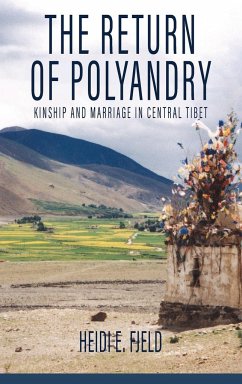Tibet is known for its broad range of marriage practices, particularly polyandry, where two or more brothers share one wife. With economic development and massive Chinese social and political reforms, including new marriage laws prohibiting plural marriages, polyandry was expected to disappear from Tibetan social lives. This book takes as its starting point the surprising increase in polyandry in Panam valley from the 1980s. It explores married lives in polyandrous houses and develops a theory of a flexible kinship of potentiality through the lens of a farming village in Tibet Autonomous Region.
Bitte wählen Sie Ihr Anliegen aus.
Rechnungen
Retourenschein anfordern
Bestellstatus
Storno








